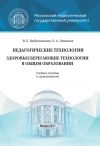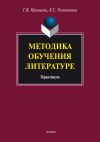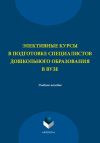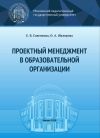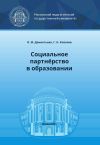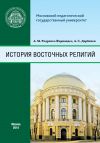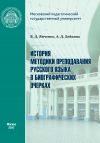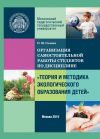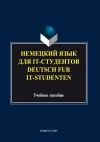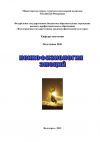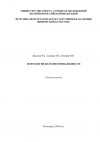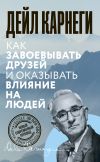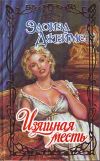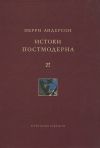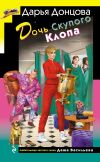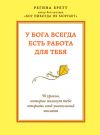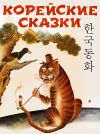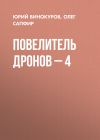Текст книги "Английский язык. Сравнительная педагогика"
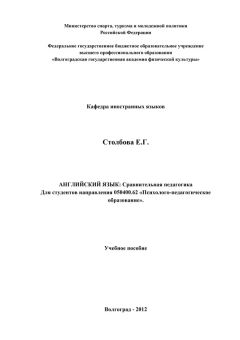
Автор книги: Елена Столбова
Жанр: Учебная литература, Детские книги
сообщить о неприемлемом содержимом
Текущая страница: 1 (всего у книги 5 страниц) [доступный отрывок для чтения: 1 страниц]
Елена Столбова
Английский язык. Сравнительная педагогика
ПОЯСНИТЕЛЬНАЯ ЗАПИСКА К УЧЕБНОМУ ПОСОБИЮ
Цель и содержание учебного пособия
Данное учебное пособие предназначено для студентов и аспирантов, обучающихся по направлению 050706 Педагогика и психология. Оно составлено в соответствии с требованиями государственного образовательного стандарта высшего профессионального образования.
Цель учебного пособия – помочь студентам в процессе аудиторной и самостоятельной работы овладеть навыками чтения и перевода. Приобретенные знания, умения и навыки должны обеспечить будущему специалисту возможность использовать в своей работе специальную литературу на английском языке, т.е. умение самостоятельно читать и переводить английские тексты по психолого-педагогической тематике, отбирать полезную для работы информацию, а также приобрести умение доступно излагать свою мысль на английском языке при общении с иностранными коллегами.
В учебном пособии представлены оригинальные неадаптированные тексты по психолого-педагогической тематике из различных периодических, учебных и методических английских изданий. Их тематика разнообразна: понятие педагогики как науки, процесс, цели и методы обучения, история и философия образования, сравнительная педагогика, индивидуальное и дистанционное обучение и др.
Учебное пособие имеет четкую структуру и состоит из 15 уроков, каждый из которых содержит текст по специальности и дополнительный текст, содержащий в себе информацию о выдающихся деятелях в области педагогики и психологии. Каждый текст в конце имеет практические упражнения, направленные на закрепление полученных в ходе занятий знаний.
Выбор материала обучения и формы работы над ним определяется содержанием учебных планов в зависимости от специализации обучаемых.
Для развития навыков практического владения английским языком в учебном процессе могут быть использованы различные приемы самостоятельной и аудиторной работы над учебным материалом:
1) чтение и перевод учебных текстов;
2) чтение учебного материала без словаря с охватом общего содержания прочитанного;
3) составление словаря специальной лексики;
4) выполнение устных и письменных упражнений в конце каждой из изучаемых тем.
Предлагаемые тексты могут быть использованы как самостоятельные задания внеаудиторных и аудиторных контрольных работ, экзаменов и зачетов, а также в качестве материала для дополнительного чтения студентов с выборочным переводом текста.
LESSON 1
PEDAGOGY AS A SCIENCE
TEXT A
1. Read and translate the text.
Pedagogy is the art or science of being a teacher. The term generally refers to strategies of instruction, or a style of instruction. Pedagogy is also sometimes referred to as the correct use of teaching strategies. For example, Paulo Freire referred to his method of teaching adults as "critical pedagogy". In correlation with those teaching strategies the instructor's own philosophical beliefs of teaching are harbored and governed by the pupil's background knowledge and experiences, personal situations, and environment, as well as learning goals set by the student and teacher. One example would be the Socratic schools of thought.
The first major milestone in the history of education occurred in prehistoric times when man invented language. Language enabled man to communicate more precisely than he could by signs and gestures. But early man had only a spoken language. He had no system of writing or numbering and no schools.
Young people in prehistoric societies were educated through apprenticeship, imitation and rituals. Through apprenticeship a young man learned, for example, how to build a shelter by working with an older experienced master builder. Through imitation, young people acquired the language and customs of their parents and other adults in their society. Through the performance of rituals, they learned about the meaning of life and the ties that bound them to their group. The rituals consisted of dancing or other activities. They were performed at times of emotional stress, such as death, warfare, or drought. The rituals usually involved myths, which dealt with such things as the group's history and its gods and heroes.
Today, in all societies, young people still learn through apprenticeship, imitation and ritual. But as a society grows increasingly complicated, teachers and schools take on more and more responsibility for educating the young.
The role of a teacher is generally a very varied one. It does not only require a good knowledge of the subjects you teach. Teachers must also have the ability to communicate, inspire trust and confidence, and motivate students. An understanding of the students’ emotional and educational needs in respect to their individual background and cultural heritage is also very important. A teacher will also benefit from being organized, dependable, patient and creative.
The day of a teacher can look very different, depending on where you end up teaching, and which age groups. Different schools organize their teaching differently, and public schools in poor areas usually have more problems with a low motivation of the students, and run down facilities with large classes. Such circumstances can make teaching much more challenging and stressful, than it may be in a smaller private school where students are admitted selectively and classes are smaller.
Teaching brings many rewards and satisfactions, but it is a demanding, exhausting, and sometimes frustrating job. It is hard to do well unless you enjoy doing it. Teachers who do enjoy their work will show this in their classroom behavior. They will come to class prepared for the day's lessons and will present lessons in a way that suggests interest and excitement in promoting learning. When students achieve success, the teacher shares their joy.
Vocabulary:
refer to – относиться к
harbor – исходить
apprenticeship – учение
warfare – война
inspire – вдохновлять
goal – цель
invent – изобретать
performance – представление
confidence – доверие
benefit – извлекать пользу
correlation – соотношение
drought – засуха
bound – граничить
vary – отличаться
challenging – сомнительный
thought – мысль
shelter – убежище
admit – принимать
heritage – наследие
dependable – зависимый
2. Give English equivalents:
Школа мысли, знаки, общество, ответственность, требовательный, система письма, иметь дело с, возможность, вдохновлять, требовать, принимать, удовлетворение, регулировать, бедные районы, зависимый, по-разному, получать удовлетворение.
3. Translate these expressions:
Milestone, system of numbering, selectively, to achieve success, prehistoric times, to run down, rewards, frustrating, enabled man, promoting learning, meaning of life, critical pedagogy, to involve, environment, customs, apprenticeship, warfare, gestures.
4. Answer the questions:
1. What kind of job is teaching?
2. How did people learn about the meaning of life?
3. What was the first major milestone in the history of education?
4. What do the rituals usually involve?
5. What does the term “pedagogy” mean?
6. What does the role of a teacher require?
7. How do different schools organize their teaching?
5. Translate into English:
1. Обучение приносит много наград и удовольствий.
2. Учителя должны иметь способность общаться, вызывать доверие и уверенность и мотивировать учащихся.
3. Раньше у людей не было системы письма и чисел.
4. Ритуалы проводились в периоды войн, засухи или смерти.
5. Изобретение разговорного языка позволило человеку общаться более точно.
6. Так как общество становится все более сложным, учителя берут на себя больше ответственности за воспитание молодежи.
7. В доисторические времена учащиеся обучались путем подражания и обучения.
TEXT B
6. Read and translate the text.
Aristotle (384 BC – 322 BC) was a Greek philosopher, a student of Plato and teacher of Alexander the Great. Aristotle is one of the most important founding figures in Western philosophy. Aristotle's writings were the first to create a comprehensive system of Western philosophy, encompassing morality and aesthetics, logic and science, politics and metaphysics.
Aristotle was an academic throughout his career. At the age of 18 he entered one of the most renowned centres of learning of his day, Plato’s Academy, where he became noted for the passion with which he devoted himself to his studies, particularly to reading, a trait which won him the nickname of ‘reader’. Then he built up the first great library which served as a model for the libraries of Alexandria and Pergamon. In 334 Aristotle returned to Athens and established his own school, the Lyceum. It was a type of university where research was pursued as an extension of higher education.
For Aristotle the goal of education is identical with the goal of man. Obviously all forms of education are explicitly or implicitly directed towards a human ideal. But Aristotle considers that education is essential for the complete self-realization of man. The supreme good to which all aspire is happiness. But for Aristotle the happy man is neither a noble savage, nor man in his natural state, but the educated man.
General understanding:
1. Who was Aristotle?
2. What was his goal of education?
3. Who was the happy man, according to Aristotle?
4. What was Lyceum like?
5. How did his ideas influence on Western philosophy?
LESSON 2
THE PROCESS OF TEACHING
TEXT A
1. Read and translate the text.
A teacher's main responsibility is to teach. The teacher's job involves many roles besides that of instructing students. At times, a teacher serves as a parent surrogate, entertainer, psychotherapist, and record keeper, among other things. All of these are necessary aspects of the teacher's role. However, they are subordinate to and in support of, the major role of teaching.
Some teachers become more concerned with mothering or entertaining students than with teaching them. In these classes, much of the day is spent in reading stories, playing games, singing and listening to records. Such teachers do not like to spend much time teaching the curriculum and feel they must apologize to children or bribe them when lessons are conducted. These teachers are meeting their own needs, not those of the students. By the end of the year, the pupils will have acquired negative attitude toward the school curriculum, and they will have failed to achieve near their potential.
The teacher is in the classroom to instruct. This involves move than just giving demonstrations or presenting learning experiences. Instruction also means giving additional help to those who are having difficulty, diagnosing the sources of their problems, and providing remedial assistance. For the teacher we see that it means finding satisfaction in the progress of slower students as well as brighter ones. If a teacher's method of handling students who finish quickly is to assign them more of the same kind of exercises, students will learn to work more slowly or hid the fact that they have finished. Teachers would do much better to assign alternate activities of the students' choice or to allow them to move on to more challenging problems of a similar type.
Another important indicator is the way teachers respond to right and wrong answers. When teachers have the appropriate attitude, they accept either type of response for the information it gives about the student. They become neither overly elated about correct answers nor overly disappointed about incorrect answers. They use questions as a way to stimulate thought and to acquire information about a student's progress.
Although praise and encouragement are important, they should not interfere with basic teaching goals. If a teacher responds with overly dramatic praise every time a student answers a simple question, the class will likely be distracted from the content of the lesson. A better strategy is to follow a simple correct answer with simple feedback to acknowledge that it is correct. Criticism, of course, should be omitted. In general, the teacher’s behavior during question-and-answer sessions should say, "We're going to discuss and deepen our understanding of the material," and not, "We’re going to find out who knows the material and who doesn't."
Although all students cannot be expected to do equally well, each teacher can establish reasonable minimal objectives for a class. Naturally, most students will be capable of going considerably beyond minimal objectives, and the teacher should encourage students' cognitive development as far as their interests and abilities allow. However, in doing so, teachers must not loose sight of basic priorities. Teachers with appropriate attitudes will spend extra time working with students who are having difficulty.
When teachers do have the appropriate attitude toward school-work, they present it in ways that make their students see it as enjoyable and interesting. Teachers should not expect students to enjoy learning in the same way they enjoy a ride on a roller coaster. Instead, there should be the quieter but consistent satisfaction and feelings of mastery that come with the accumulation of knowledge and skills.
Teachers with negative attitudes toward school learning see learning activities as unpleasant but necessary drudgery. If they believe in a positive approach toward motivation, they will attempt to generate enthusiasm through overemphasis on contests, rewards, and other external incentives. If they are more authoritarian and punitive, they will present assignments as bitter pills that students must swallow or else. In either case, the students will acquire distaste for school activities, thus providing reinforcement for teacher expectations.
Other evidence of inappropriate teacher attitudes toward school activities includes: emphasizing the separation of work and play, with work pictured as an unpleasant activity one endures in order to get to play; introducing assignments as something the class has to do, rather than merely as something they are going to do; the use of extra assignments as punishments, etc. Teachers with negative attitudes also discuss academic subjects in a way that presents them as dull and devoid of content.
Teachers must communicate to all of their students the expectations that the students want to be fair, co-operative, reasonable, and responsible. This includes even those who consistently present the same behavior problems. If students see that teachers do not have the faith in them, they will probably lose whatever motivation they have to keep trying. Thus, teachers should be very careful to avoid suggesting that students deliberately hurt others or enjoy doing so, that they cannot control their own behavior, or that they simply do not care and are making no effort to do so. Such statements will only establish a negative self-concept and will lead to even more destructive behavior.
Vocabulary:
subordinate – подчиняться
curriculum – учебная программа
achieve – достигать
assign – назначать
praise – похвала
omit – пропускать
satisfaction – удовлетворение
punitive – карательный
reinforcement – усиление
devoid – лишенный
concern with – заинтересован чем-л.
acquire – приобретать
remedial – облегчающий
respond – реагировать
feedback – обратная связь
deepen – углублять
drudgery – тяжелая работа
distaste – испытывать отвращение
emphasize – подчеркивать
faith – вера
2. Give English equivalents:
Неправильный, вмешиваться, способности, разумный, усилие, похвала, соответствующий, ответственность, избегать, утверждение, самооценка, показатель, поощрение, понимание, накопление знаний и навыков, разочарованный, поведение, учебная деятельность, охватывать.
3. Translate these expressions:
Alternative activities, negative attitude, acknowledge, expectation, to be capable, extra time, roller coaster, external incentives, destructive, cognitive development, enjoyable, inappropriate attitude, self-concept, positive approach, teacher expectation, to devoid of content, to allow.
4. Answer the questions:
1. When do the pupils acquire negative attitude toward the school curriculum?
2. Why should teachers omit criticism?
3. How does a teacher serve at times?
4. What makes a negative self-concept?
5. What must teachers do with basic priorities?
6. What is the main responsibility of a teacher?
7. When do students lose motivation?
5. Translate into English:
1. Учитель может устанавливать минимальные цели в классе.
2. Обучение – это не то же самое, что катание на американских горках.
3. Похвала и поощрение не должны мешать достижению целей обучения.
4. К концу года ученики приобретают отрицательное отношение к обучению в школе.
5. Учитель будет тратить дополнительное время для работы со студентами, имеющими трудности.
6. Такое положение может привести к отрицательной самооценке и разрушительному поведению.
7. Учителя должны предоставлять студентам право выбора.
TEXT B
6. Read and translate the text.
John Amos Comenius (1592–1670) was a Czech teacher, educator, and writer. He served as the last bishop of Unity of the Brethren, and became a religious refugee and one of the earliest champions of universal education, a concept eventually set forth in his book “Didactica Magna”. He is often considered the father of modern education.
John Comenius was the youngest child and only son of Martin Comenius and his wife Anna. Due to his impoverished circumstances, he was unable to begin his formal education until late. He was 16 when he entered the Latin school in Přerov (he later returned to this school as a teacher 1614–1618).
The most permanent influence exerted by Comenius was in practical educational work. The practical educational influence of Comenius was threefold.
He was first a teacher and an organizer of schools, not only among his own people, but later in Sweden, and to a slight extent in Holland. In his “Didactica Magna” (Great Didactic), he outlined a system of schools that is the exact counterpart of the existing American system of kindergarten, elementary school, secondary school, college, and university.
In the second place, the influence of Comenius was in formulating the general theory of education. The third aspect of his educational influence was that on the subject matter and method of education, exerted through a series of textbooks of an entirely new nature.
General understanding:
1. What is the name of his famous book?
2. Why was he unable to begin his formal education until late?
3. What was the most permanent influence exerted by Comenius?
4. What was his occupation?
5. What were his ideas in formulating the general theory of education?
LESSON 3
THE PURPOSE OF EDUCATION
TEXT A
1. Read and translate the text.
There is a feeling that the schools are not succeeding – that standards are too low, that schools are not preparing young people with the skills, knowledge and personal qualities which are necessary for the world of work and schools have failed to instill the right social values. These are the criticisms and therefore there have been changes to meet these criticisms.
However, the criticisms take different forms. First, there are those who believe that standards have fallen, especially in the areas of literacy and numeracy – and indeed unfavourable comparisons are made with the other countries as a result of international surveys. For example, the recent Third International Mathematics and Science Survey (TIMSS) placed in England and Wales very low in mathematical achievement at 13 – although very high in science. Therefore, these critics emphasize «back to basis» and the need for more traditional teaching methods.
Second, there are those who argue for a rather traditional curriculum which is divided into «subjects» and which calls upon those cultural standards which previous generations have known – the study of literary classics (Shakespeare, Keats, Wordsworth), rather than popular multi-cultural history, classical music rather than popular music, and so on. Since there are many children who would not be interested in or capable of learning within these subjects, there is a tendency for such advocates of traditional standards to support an early selection of children into «the minority» who are capable of being so educated, separated off from «the majority» who are thought to benefit more from a more technical or practical education.
Third, there are those who question deeply the idea of a curriculum based on these traditional subjects. Many employers, for instance, think that such a curriculum by itself ill – serves the country economically. The curriculum ought to be more relevant to the world of work, providing those skills, such as computer, numeracy and literacy skills, personal qualities (such as cooperation and enterprise) and knowledge (such as economic awareness) which make people more employable.
A very important speech which expressed those concerns and which is seen as a watershed in government policy was that of Prime Minister Callaghan at Ruskin College, Oxford, in 1976.
«Preparing future generations for life» was the theme and he pointed to the need for greater relevance in education on four fronts: the acquisition by school leavers of basic skills which they lacked but which industry needed; the development of more positive attitudes to industry and to the economic needs of society; greater technological know-how so that they might live effectively in a technological society; the development of personal qualities for coping with an unpredictable future.
Vocabulary:
succeed – успевать
prepare – готовить
value – ценность
achievement – достижение
argue for – выступать за
previous – предыдущий
selection – отбор
benefit – извлекать пользу
speech – речь
acquisition – приобретение
skill – навыки
fail – терпеть неудачу
survey – исследование
emphasize – подчеркивать
curriculum – учебная программа
capable – способный
advocate – защищать
employable – трудоспособный
watershed – поворотный пункт
cope with – бороться с
2. Give English equivalents:
Различный, счет, недавний, знания, необходимость, поддерживать, правительство, снижаться, сравнение, правильный, поколение, работодатель, указывать, критические замечания, наука, обеспечивать, политика, выражать, исследования, служить, направление, выпускник, разработка, непредсказуемый.
3. Translate these expressions:
The areas of literacy, unfavourable, teaching methods, to meet the criticism, back to basis, the minority, relevant, economic awareness, international surveys, to be interested in, numeric skills, to concern, the study of literacy classics, the majority, to enterprise, personal qualities.
4. Answer the questions:
1. What do critics emphasize?
2. What is a traditional curriculum?
3. What should people learn to live effectively in a technological society?
4. What are the results of international surveys?
5. What were cultural standards of previous generation?
6. What must the curriculum provide?
7. Why do some teachers support an early selection of children?
5. Translate into English:
1. Необходимо развитие личных качеств для борьбы с непредсказуемым будущим.
2. Стандарты школы являются слишком низкими.
3. Школы не смогли привить социальные ценности.
4. Некоторые критики подчеркивают снижение грамотности.
5. Существует необходимость использования более традиционных методов обучения.
6. Учебные программы должны быть более актуальными.
7. Некоторые учащиеся не заинтересованы в обучении.
TEXT B
6. Read and translate the text.
John Locke (29 August 1632 – 28 October 1704), was an English philosopher and physician regarded as one of the most influential of Enlightenment thinkers.
Considered one of the first of the British empiricists, following the tradition of Francis Bacon, he is equally important to social contract theory. His work had a great impact upon the development of epistemology and political philosophy.
Locke was born on 29 August 1632, in a small cottage by the church in Wrington, Somerset, about twelve miles from Bristol.
In 1693 John Locke, after writing extensively on topics such as human understanding, government, money, and toleration, published a book which seemed quite heretical at the time: “Some Thoughts Concerning Education”. Unfortunately, for the modern reader there doesn’t seem to be any shock value left at all. Consider the three key themes which are addressed: the development of self-discipline through esteem and disgrace rather than force or reward; the significance of developing a good character; and the importance of developing reason in a child by treating the child as a rational entity.
Many of Locke’s ideas are quite humane and consistent with his strong democratic sentiments. Locke’s belief that the mind is a piece of wax or white paper which the active educator must keep as still as possible in order to accurately stamp the information she would have the pupil passively receive.
General understanding:
1. Who was John Locke?
2. What was his belief?
3. What is the name of his famous book?
4. What were the three key themes of Locke?
5. How did he describe human beings?
Внимание! Это не конец книги.
Если начало книги вам понравилось, то полную версию можно приобрести у нашего партнёра - распространителя легального контента. Поддержите автора!